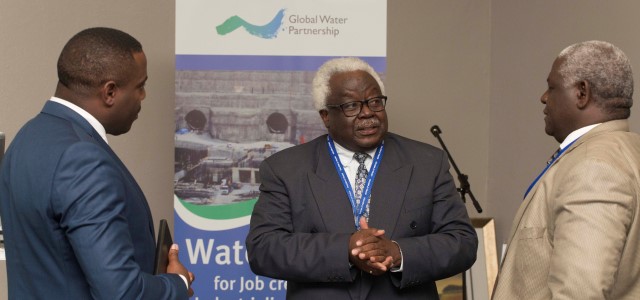This was discussed at the just concluded 12th GWP-SA Consulting Partners Meeting held in Johannesburg on 29th May 2017.
The one day meeting was held under the theme”Water for Job creation, Industrialisation and SDG implementation”. The Consulting Partners (CP) Meeting is a Statutory GWPSA Governance requirement that is convened every 2 years.
Following the 2016 CWP regional strengthening workshop, the GWPSA Regional Board recently met and approved a decision for the ‘Strategic Repositioning’ of GWPSA and CWP’s role on water security within the context of SADC Regional Industrialisation and job creation agenda as well as the 2030 Sustainable Development Goals (SDGs).
The objective is to ensure that GWP’s role in the region and countries responds realigns and adapts to evolving changes in international development context at global, regional and country level.
GWPSA/CWP strategic repositioning entails greater focus on water security, Jobs and investments with IWRM as a means.
Speaking during the CP Meeting, GWP-SA Executive Secretary Alex Simalabwi said there was an urgent need for Global Water Partnership Southern Africa (GWP-SA) to shift focus and develop approaches to use water as an instrument for stimulating job creation and work with national governments to create jobs for a growing population.

“Our new identity and that of CWPs must support the SADC industrialisation agenda; promote water security as a key vehicle towards job creation. Job creation requires cooperation across sectors and CWP can use their network to mobilise relevant partners to support SADC and national governments create jobs through investments in water infrastructure, water storage systems, irrigation canals, water supply pipelines, treatments plants, interbasin transfer schemes, dams and others.”
GWPSA Partners attending the CP Meeting reached a common understanding and identified options and opportunities for taking this serious agenda forward.
Other GWPSAF programs such as the water-energy-food nexus, water SDG, integrated urban water management, and water climate and development were also reviewed from their strategic relevance point of view.
The Southern Africa Development Community (SADC) Industrialization Strategy provided overall guidance while the United Nations 2015 World Water Assessment Report provided global facts and figures to support the discussions.
Presentations made during the meeting made reference to the figures and facts contained in the report. The executive summary of the report was also shared among the entire members of the network, and printed copies provided to those who attended the meeting.
In 2015, Heads of State of SADC adopted an industrial development strategy to leverage the region’s resources for sustainable development. The three-phase programme emphasizes efficient use of natural resources, value addition, diversification and competitiveness to propel the region into a High Tech industrial entity by 2063. The industrialisation strategy notes that through effective water resource management, industrialisation is achievable and will in turn create and sustain jobs.
The SADC industrialization strategy recognizes that water and sanitation development are among the critical ingredients of industrial development. Water demand will rise exponentially in response to industrial expansion and the related increase in income levels, a problem that will be exacerbated by climate change.
